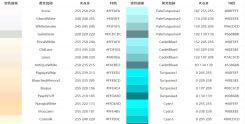- 欢迎使用千万蜘蛛池,网站外链优化,蜘蛛池引蜘蛛快速提高网站收录,收藏快捷键 CTRL + D
1. 如何解决Oracle报错ORA-00001?防范数据库唯一约束冲突的有效策略 2. ORA-00001错误解析与应对策略:Oracle数据库唯一约束错误的完整解决方案



Ensure that table or column names are enclosed in double quotes (if necessary), "table_name"."column_name".
5. Check for correct table and column names in the SQL statement
Ensure that the referenced table and column names exist in the database.
If aliases are used, ensure that the aliases are defined correctly.
6. Check for other possible syntax errors in the SQL statement
If the above methods fail to resolve the issue, carefully examine other parts of the SQL statement for possible syntax errors.
Example
Suppose we receive a SQL statement containing the ORA-00003 error:

SELECT name, age FROM students WHERE id = 1;
We can perform checks as mentioned above:
1. Keyword spelling: All keywords are spelled correctly.
2. Keyword order: The order of keywords is correct.
3. Parentheses: No parentheses are required.
4. Quotation marks: No quotation marks are required.
5. Table and column names: The table name (students) and column names (name, age) are correct.
6. Other syntax errors: No other syntax errors are found.
After inspection, we find no obvious syntax errors in this SQL statement. If we still receive the ORA-00003 error when attempting to execute this SQL statement, we need to further examine the table structure and column names in the database, ensuring they match those referenced in the SQL statement. If inconsistencies are found, modify the table and column names in the SQL statement accordingly and retry execution.
Thank you for your attention. Feel free to leave your comments, follow us for more updates, and like if you found this helpful!
```| 广告位招租-内容页尾部广告(PC) |
相关文章推荐
- 无相关信息
蜘蛛技巧最新文章
- 1. "如何在WordPress中添加PHP代码?轻松实现自定义功能和特效" 2. "想要为WordPress页面添加JavaScript?简单教程帮你轻松实现"
- 1. 为什么会出现Oracle000257?解决Oracle数据库异常错误号码的关键方法 2. Oracle000257:如何应对Oracle数据库中的异常错误号码
- 1. “Oracle错误代码39005:如何快速解决数据库连接问题” 2. “遇到Oracle错误代码39005?尝试这些方法轻松解决问题”
- "新用户专享:西部数码顶级域名首年1元购!续费更有优惠券等你来领取!"
- 1. 如何在Oracle中实现相除取整?简易教程带你轻松搞定! 2. Oracle中如何实现相除取整?一次搞懂完美解决方案!
- 1. 如何实现更高性能Oracle12数据压缩技术?提升数据库效率的关键策略 2. Oracle12数据压缩技术解析:优化存储空间利用率的有效方法
- "MySQL一周统计:数据波动背后的洞察与解决方案" "MySQL一周统计:优化数据应用,把握未来趋势"
- 1. 如何降低高防便宜VPS租用的延迟?5个实用技巧解决您的网络延迟问题 2. 高防便宜VPS租用:如何降低延迟并提升网络性能?
- 1. "如何在Windows云服务器上进行设置?" 2. "解决方案:Windows云服务器设置方法详解"
- 美国服务器租用的显著优势:性价比高丨网络稳定丨数据安全可靠














)
)
)

)
)
